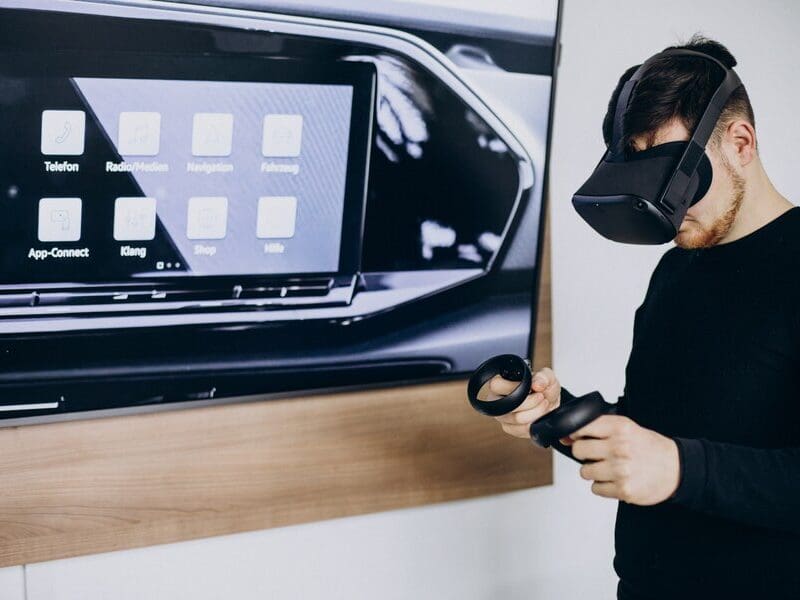
5 Trends Revolutionizing the Fleet Industry
https://www.icompario.com/en-gb/fuel-cards/For some years now, the fleet industry has been going through a massive transformation. Gone are the days of paper logbooks and dispatchers guessing about the location and ETA of equipment. Technology has taken over many of the tasks once done by paper and pencil, maximizing efficiency, and reducing costs in the operations of fleets.
To stay competitive, it is crucial that your fleet adopt technology and embrace the trends in the industry. It isn’t enough to just follow the trends, you must be on the look-out fuel card for new tech and trends and implement those which make sense for your organization
In this article, we look at five important technology trends in the fleet industry as a primer to what has been happening in the fleet industry.
1. Instant access to key data for precise management – For several years Fleet operators have used technology to better understand their fleet at all levels. This enables these operations to scale faster because keeping track of the fleet is much easier with access to all of the data instantly
Every year we see new hardware and software companies that cater to the Fleet space being started. At their core, these companies are all about gathering data about the fleet. This data allows Fleet Operators to make informed decisions based on this real-time information. It also reduces the reliance on paper records and enables sharing of information with all relevant stakeholders (internal and external) rapidly.
This all makes the entire operation run much more smoothly and reduces downtime of vehicles by reducing issues that were not expected.
2. GPS tracking and Telematics – GPS tracking of vehicles and visibility into the telematics of the vehicle have always been the stalworth of IoT in vehicles. This information allows the fleet operator to better understand everything from location and ETA to destination, to odometer reading, to driver behavior, to planning scheduled maintenance reducing breakdowns.
When IoT GPS devices are used in vehicles, the back-office logistics & dispatch staff are armed with much richer information about the ETA of the vehicle to its destination(s). These devices come in two versions: 1) removable, and 2) hard installed. The latter is much more tamper-proof and tends to be the choice in commercial deployments.
Telematic IoT devices provide even more information about the operation of the vehicle. These devices provide data such as whether the driver has his/her seatbelt on, if there are other people in the vehicle, hard braking and hard acceleration, engine hours/mileage, temperature and humidity levels of the cargo area, idle time, tire pressure, oil pressure, engine warning codes, etc. Using APIs, you can also tie this data into existing systems to tie all of your systems together making the data you receive a lot more actionable and enables visibility to external users through your portal (think package carriers tracking and ETA information).
Because you have all this visibility into the operation of the vehicle, ROI is easily realized. What would the cost of a single load of perishable goods cost? What would it cost to replace a seized engine because a low oil pressure indicator is ignored? Because you are now armed with this information in real-time, you can take action before disasters occur.
3. Reducing fuel costs – One of the greatest expenses of Fleet Operations is maintenance and fuel. We talked about how telematics can help reduce maintenance costs by early detection of issues and keeping better track of scheduled maintenance. What about a reduction in Fuel expenses?
With the rising cost of fuel, it is imperative to reduce waste whenever possible. IoT devices can help here as well. This is achieved in several ways:
- Well-maintained vehicles are more fuel efficient
- Adherence to speed limits saves fuel
- Hard braking and hard acceleration costs fuel
- Properly inflated tires are the most efficient
- Route optimization reduces the distance traveled
- Long idle alerts reduce fuel consumption
- And many more examples.
4. Reducing maintenance costs – Because you are receiving information in real-time, you can easily prevent large maintenance costs by having a complete understanding of your equipment and catching small problems before they become huge issues.
IoT devices will keep track of engine hours so you can perform routine maintenance and send error codes as soon as they occur so you can take immediate action on those problems. Maintenance is one of the largest costs in fleet operation, so by mitigating issues early, the savings will more than pay for the cost of the IoT service.
5. Electric/Alternative fuel vehicles – The landscape of how vehicles are powered is changing quickly. Many fleets (especially fleets of smaller vehicles) are opting for alternative fuel types like full electric or hybrid vehicles. There will come a day when all vehicles will be no longer on petroleum products, and that time may come sooner than later.
We spoke a lot about IoT devices and the data these devices send back to fleet operators. None of this would be possible without IoT SIM cards installed on these devices. There are typically two types of IoT SIM cards: 1) traditional, removable, plastic SIM cards, and 2) embedded SIMs soldered into the device making them non-removable. Both of these IoT SIM card types are the most important component of the solution because, without them, the data the devices collect can’t go anywhere. It is critical, then, that the IoT SIM card provider you partner with be multi-carrier so you can use several networks without removing the SIM. You also want to choose a carrier that allows cross-border international roaming at no charge, so if your vehicles move near, or over international borders, you won’t see any surprises on your monthly bill.
Luckily, OneSimCard IoT provides IoT SIM cards with all of these capabilities and so much more. With over 27 years in the Telecoms space, OneSimCard IoT has a team of experts who are specifically trained to understand your requirements and develop a solution for your unique use case. Whether you are a Fleet Operator or an IoT solution provider who needs a world-class connectivity provider, OneSimCard IoT can help you. Simply fill out their Contact form and one of their experts will schedule a 30-minute discovery call to discuss your needs.







